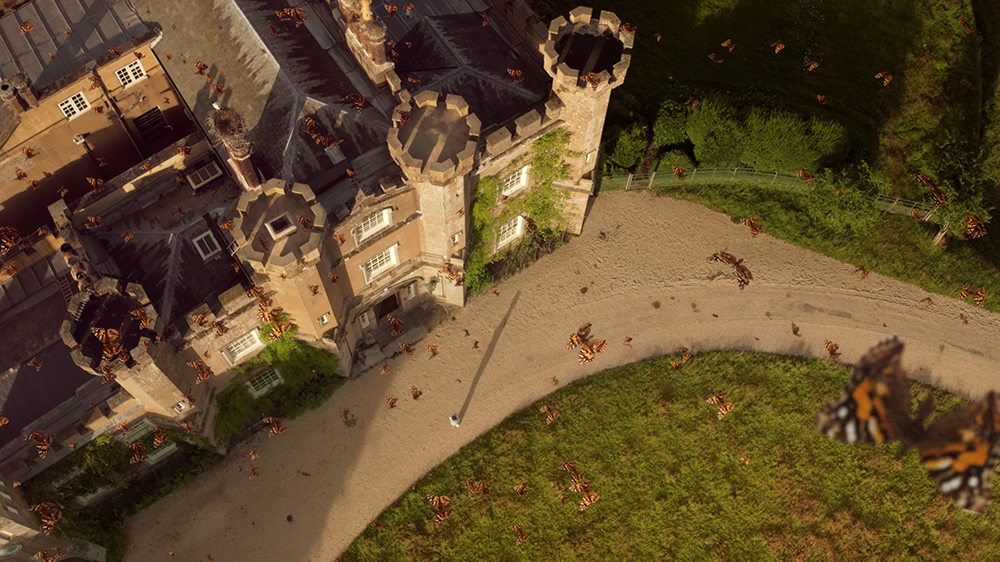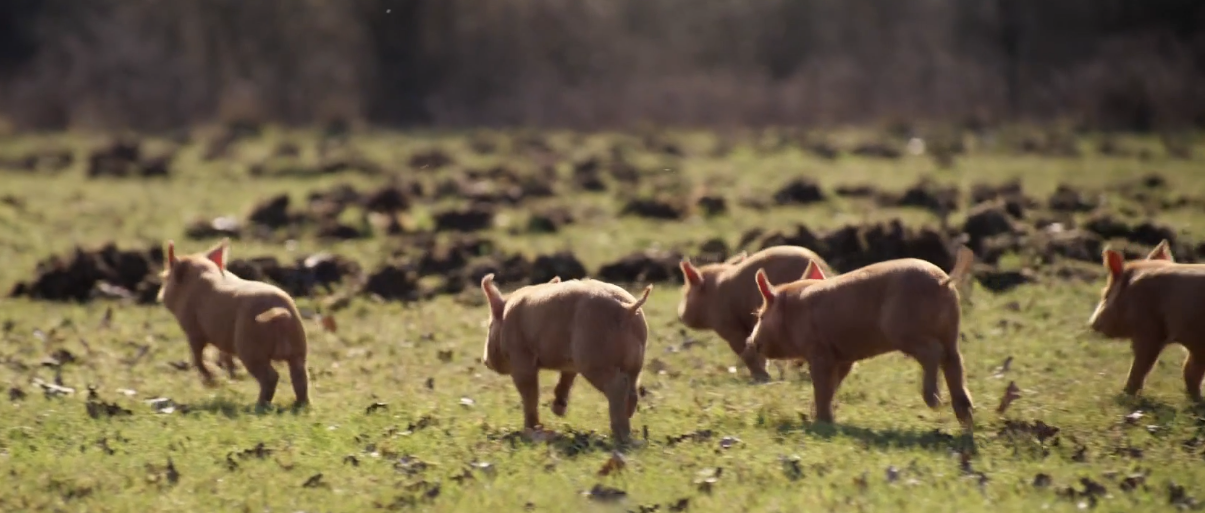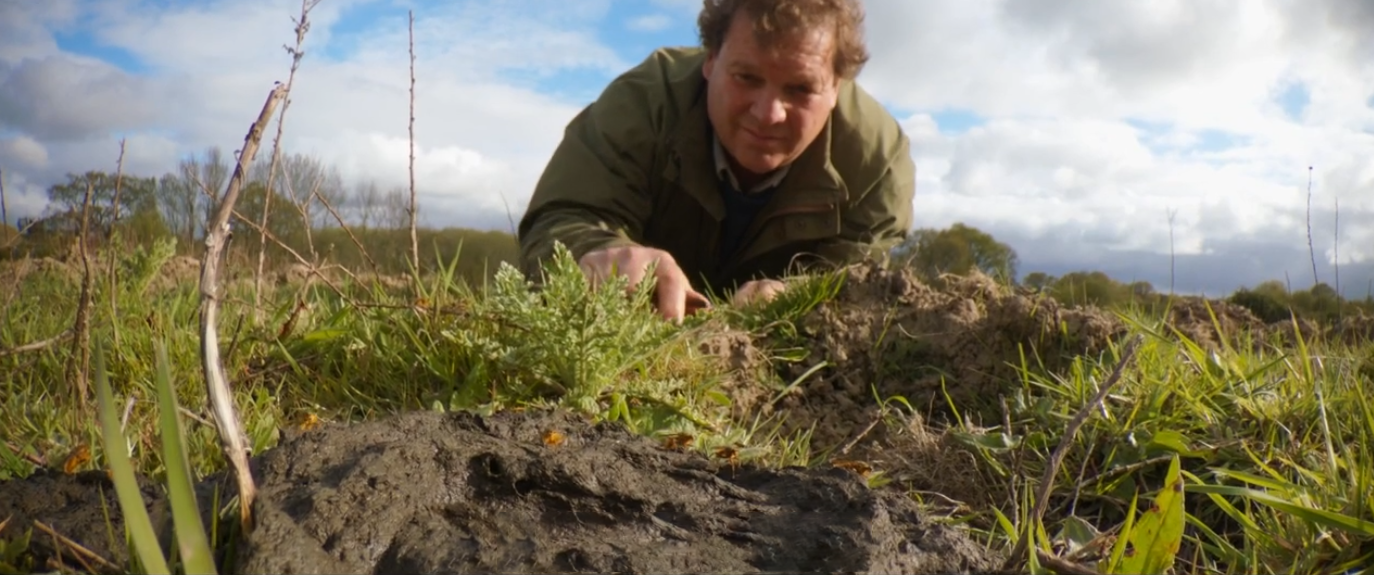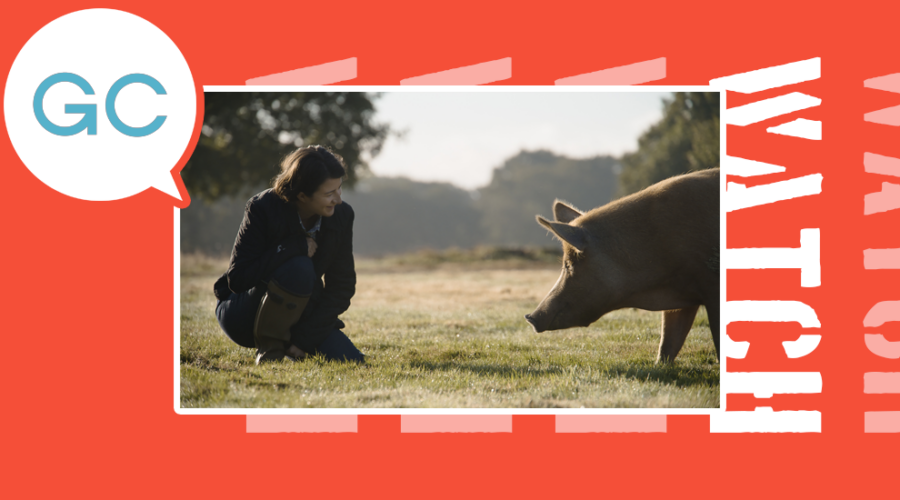“40 million birds had disappeared from our skies. We’ve lost 97% of all our wildflower meadows. We’ve ploughed up 75,000 miles of hedgerows. We’ve lost tens of thousands of ancient woodlands. A quarter of all mammals in Britain are on the verge of extinction. We are one of the most depleted countries in the world.”
These are the compelling words of Isabella Tree in Wilding, the film directed by David Allen about her experience rewilding land with her husband, Sir Charles (Charlie) Burrell.
Charlie inherited a castle and five square miles of farmland in his twenties. Having found the soil impossible to work with, Charlie and Isabella start looking at alternatives to farming, helped along by inspiration from an expert in ancient oak trees, Ted Green, and Dutch ecologist Frans Vera, whose work can be seen in the reclamation of the Oostvaardersplassen nature reserve where large herbivorous mammals were introduced to encourage nature to take control back of the area.

Tree explains in this documentary that the farmed land so synonymous with the British countryside actually represents “a landscape of loss”. Burrell and Tree’s tales of how farming depletes and destroys the soil are compelling, backed by stunning visuals that enhance the story being told. The couple decide to “tear down the fences, rip it all up, and let the animals run free” on their land.
This involves introducing Exmoor ponies, longhorn cattle, and Tamworth pigs into their estate, called Knepp, to mimic as closely as possible the species that would have roamed the land in the past, “Trying to wake up ancient relationships”.
It is fascinating to see the domesticated animals rediscover their instincts when they can roam where they like and they don’t have humans providing food whenever they need it. The first winter is a tense one for the couple in the castle – will the animals survive the wild?
Trotting piglets assure us that not only did they survive, the animals seem to be thriving and displaying behaviours you would not see if they were farmed.

The couple, too, thrive. Burrell develops a fascination with bugs, and Tree delights in every new development on their land, with life coming back into the soil and rare wildlife including turtledoves (“the next likely bird to go extinct”) making Knepp their home.
“We have presided over a period of real destruction and we need to think again – well, we are”, Charlie says about the changes they’ve made.
There is a gorgeous use of time-lapse photography in particular in Wilding, and the rich flora and fauna are beautifully portrayed on the screen. I could have done without the strange reconstructions of the couple in their younger days, such as a young Charlie chasing pigs off the lawn with a whip, but that’s probably a bit picky.

Rewilding has not been an entirely straight-forward process for Tree and Burrell, however, and it is the objections of others to their project that highlight some of the flaws of this film.
We hear what people who opposed the rewilding said, such as that farmers should “feed the nation” and that ragwort, which would kill cattle, was running wild. But because these objections were not answered or addressed in the film, it left me with questions.
A controversy with their inspiration’s Oostvaardersplassen project was glossed over to such a degree that my suspicions were raised – it turns out thousands of animals starved to death there, so it was subsequently limited.

Wilding, and Knapp itself, are idyllic and this is clearly an incredibly valuable use of land. The first stork chick that hatched in the wild in Britain for 600 years was born there, and the arguments against the relentless abuse of farmland are persuasive. Tree and Burrell are doing important work, and through their work we are learning more about what does and does not help wildlife, and what is and isn’t possible when animals and plants are left to their own devices.
However, in failing to answer the questions posed in the film – never mind the broader questions posed by Guy Shrubsole and others about how land is distributed at all – Wilding is a little frustrating.
Should any man be given a castle and miles of land? How will we feed the country if we give land back over to nature? Are cows, horses and pigs the best way to rewild? How does a farmer make a living when they stop farming?
I wish these questions – at least, realistically, the final three – had been tackled in the film so that I had been left inspired and motivated and determined to encourage more projects like this around the country. Instead, Wilding left me feeling vaguely dissatisfied and wondering what else, like the seemingly gruesome mass animal deaths in the Netherlands, was glossed over.
Wilding will be released on DVD and Blu Ray on 16 December 2024

